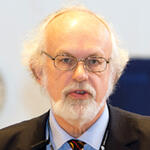Blog
Inequality in South Africa - An Interview with Murray Leibbrandt
At the UNU-WIDER Inequality conference September 2014 we interviewed Murray Leibbrandt, Professor of Economics at the University of Cape Town on issues of inequality in South Africa. Leibrant begins by positing that South Africa, like Brazil, is a microcosm of the world. This comment picks up on the keynote address by Brazilian government minister Marcelo Cortes Neri. Leibbrandt goes on to explain the historical reasons why this has been so, and why inequality persists. This requires analysis of the industrial and labour market structures in the South African economy. He discusses job losses in mining and agriculture, as well as the informal sector and the impact of public works programmes.
Inequality and the labour market in South Africa
Addressing inequality in South Africa - an interview with Murray Leibbrandt
In the second part of the interview Leibrandt addresses spatial inequality and social transfers as factors in overall inequality in the South African economy. In particular, he indicates how transport costs and the low availability of jobs in the formal sector mean that it may well be a rational strategy NOT to seek work, because of the low chance of success for rural adults. He discusses the poverty reducing impact of child support and pensions, and because of family structures and dynamics, the importance of older women (“the grannie factor”) in improvements of life chances for children.
Education and skills constrains in South Africa
In the third part of the interviw Leibrandt discusses improvements in the average length of schooling and the persistent difficulties in achieving employment in the formal sector in South Africa. He argues that this is due to the structure of the labour market and the type of job opportunities available, as well as continuing concerns about quality of education. He also comments on arguments about whether the economy suffers from skill constraints. He concludes by looking at the difficulty of employing and retaining teachers and nurses in rural areas.
Addressing inequality in South Africa
Addressing poverty is not enough in the South African context argues Leibrandt. Policies which address inequality will also have an impact on poverty reduction. Social inclusion policies are also needed. He concludes by stressing the importance of UNU-WIDER’s long-term interest in inequality as a strong reason for its relevance for his work and that of South African colleagues.
For more interviews, see UNU-WIDER channel on Youtube.
 Join the network
Join the network